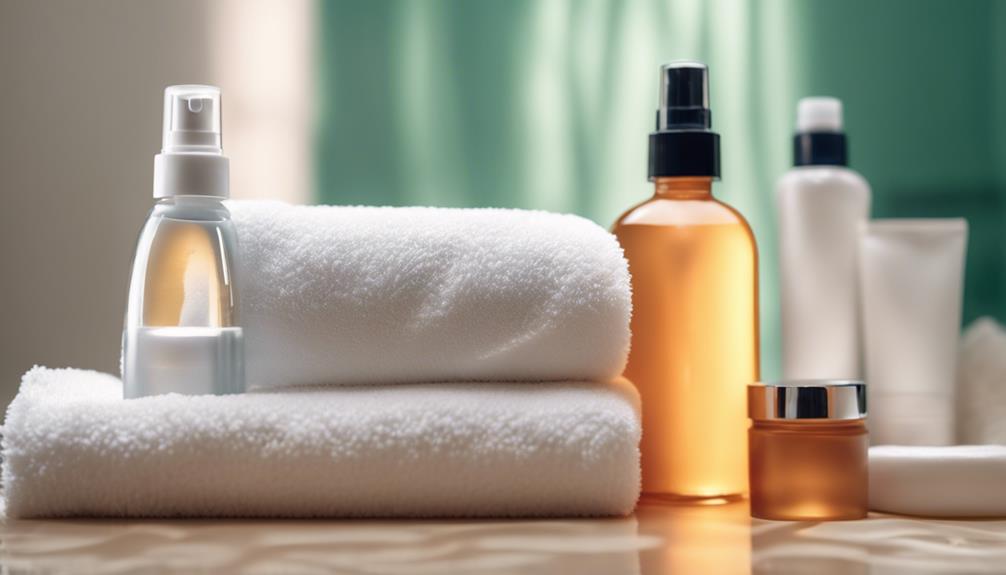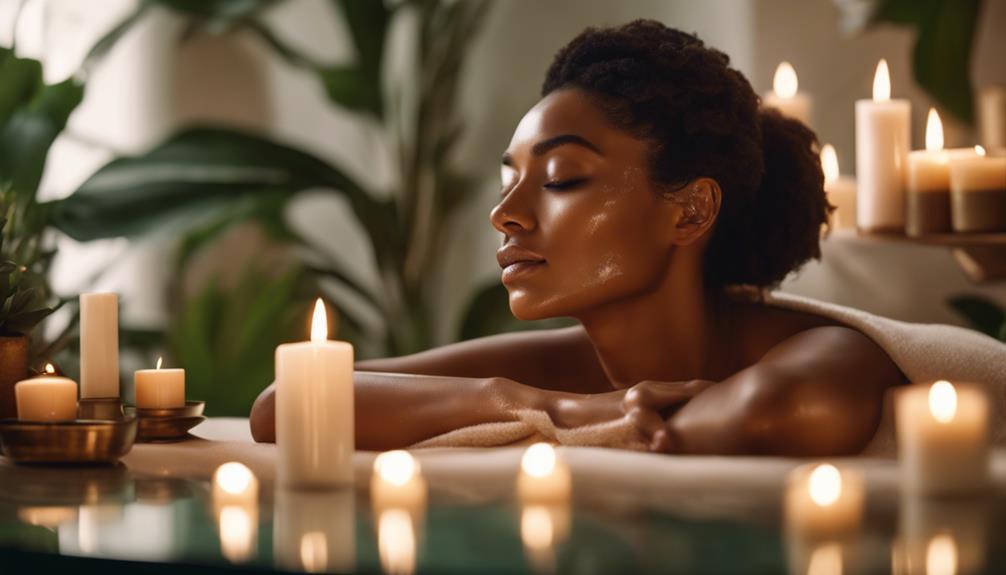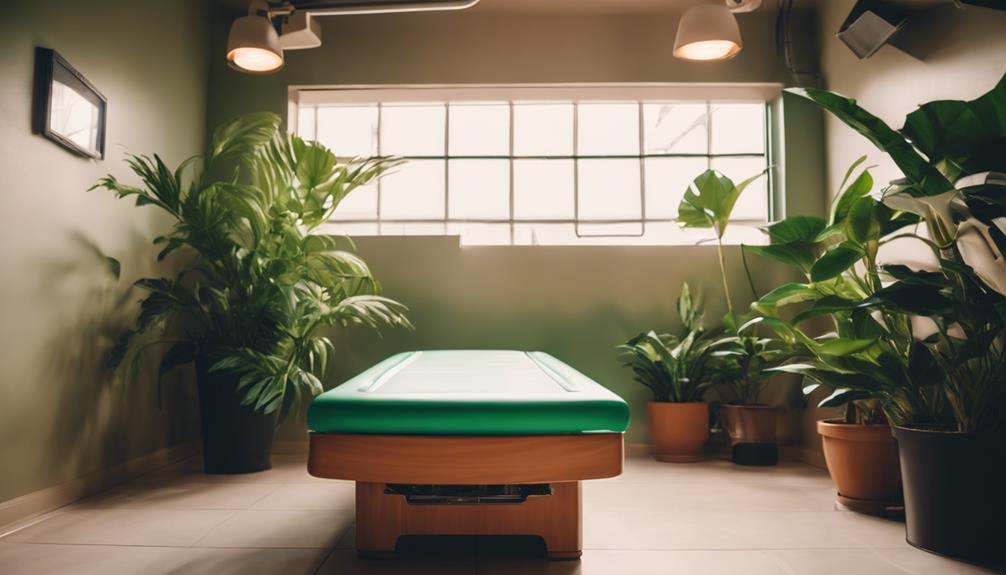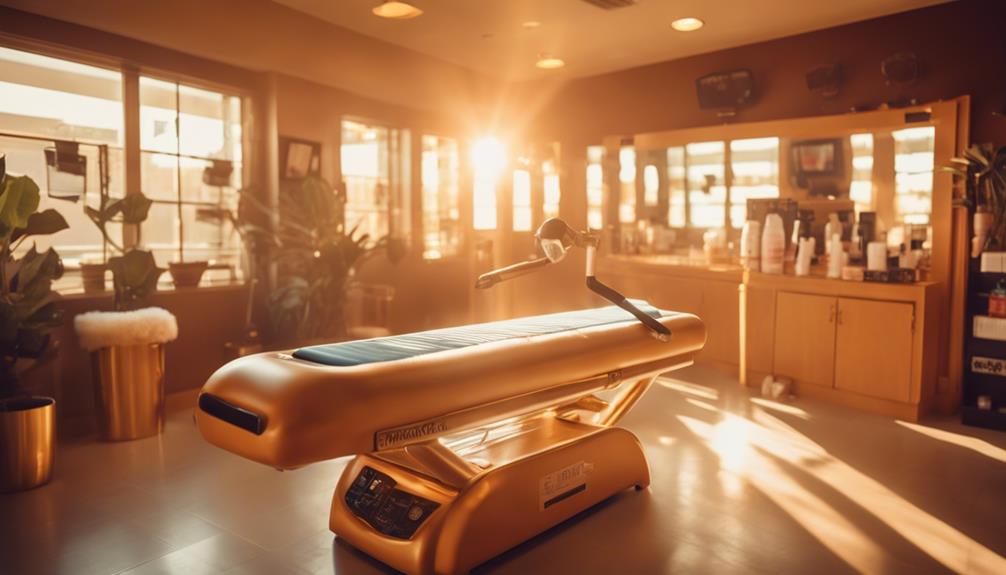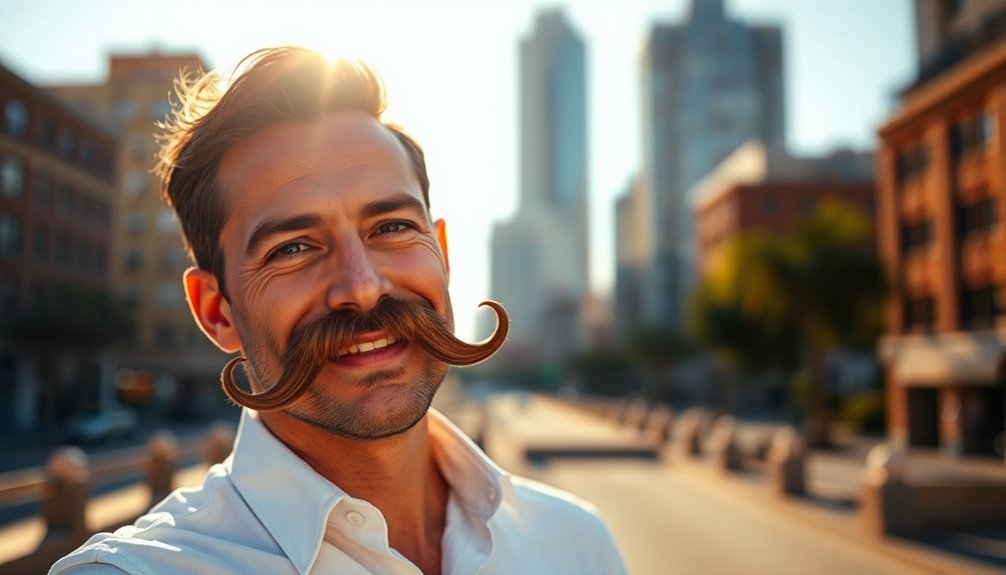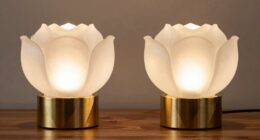When using tanning beds, maintaining cleanliness is crucial! Start by selecting a salon that prioritizes hygiene—nobody wants to share germs. Be sure to wear protective gear like FDA-approved goggles and disposable sheets; they are key in fighting bacteria. Consider using antimicrobial lotions to protect your skin. Don’t skip post-tanning care—moisturize and apply sunscreen. Regularly check your skin for any unusual changes for peace of mind. Want to learn more about safe and fantastic tanning experiences? Let’s delve deeper! Now, let’s discuss some tanning bed hygiene tips to remember. Always disinfect the tanning bed before and after use to prevent the spread of bacteria. And remember to wash your hands before and after tanning. Following these hygiene practices will ensure a safe and enjoyable tanning session.
Key Takeaways
- Ensure tanning salons maintain high hygiene standards by regularly cleaning and sanitizing beds and equipment before each use.
- Always use FDA-approved goggles and disposable sheets to protect against UV exposure and create a clean barrier on tanning beds.
- Inquire about the salon's cleaning routines and staff practices to ensure a safe tanning environment.
- Apply antimicrobial products on clean skin before tanning for added protection against germs and bacteria.
Importance of Hygiene
Maintaining hygiene in tanning salons is essential to protect yourself from infections and skin issues. Imagine stepping into a salon that looks as clean as your favorite restaurant; you'd feel way more comfortable, right?
Look for places that prioritize cleanliness, like those where staff sanitize the tanning beds before each use. If you notice a salon that seems neglected, it's probably best to avoid it.
Remember, UV rays don't kill germs! You could end up with a nasty bacterial infection instead of a gorgeous glow.
Protective Gear Recommendations
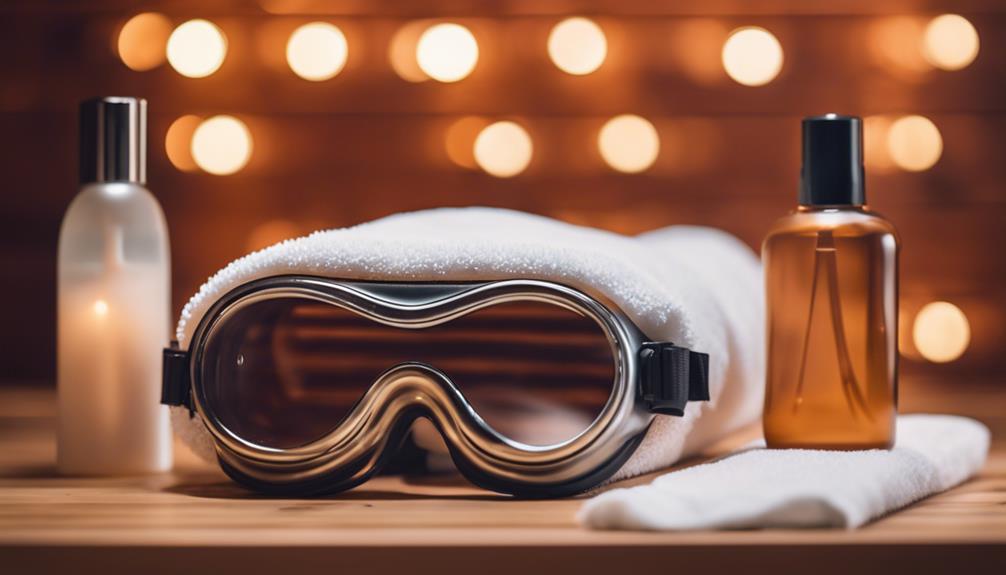
When tanning, always wear protective gear to shield your skin and eyes from harmful UV exposure. Think of it like wearing a superhero cape—your goggles are your mask!
Grab a pair of FDA-approved goggles that fit snugly; regular sunglasses just won't cut it. You wouldn't want to risk your precious peepers!
Also, consider using disposable sheets or towels. They create a clean barrier between your skin and the tanning bed, just like a cozy blanket.
Don't forget nasal filters, too; they help keep pesky airborne germs away!
And if you're feeling extra fancy, throw on some disposable undergarments. With the right protective gear, you're not just tanning—you're making smart choices for your skin.
Antimicrobial Product Usage
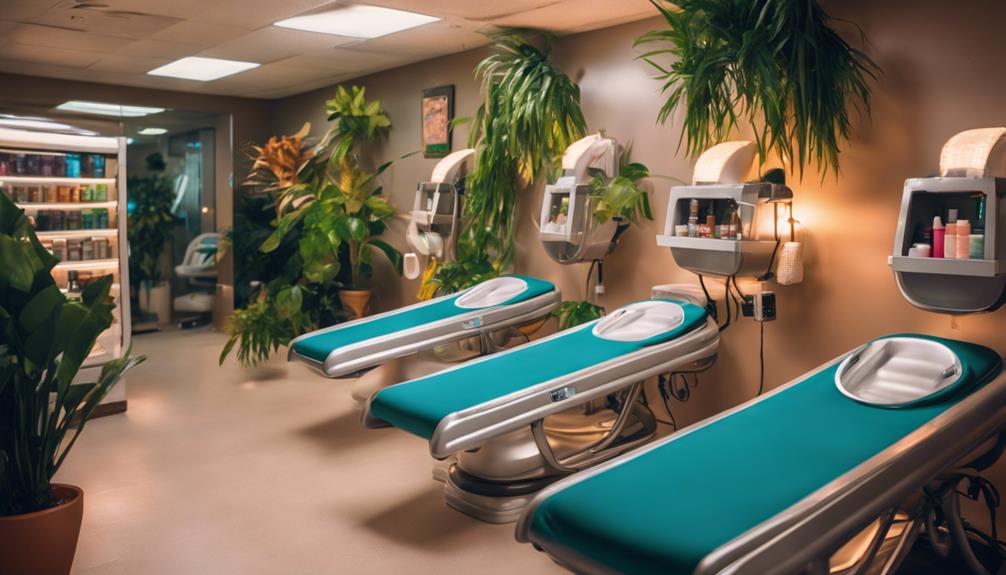
Using antimicrobial products before tanning can greatly enhance your skin's protection against germs and infections. Think of it like putting on a superhero cape for your skin! You want to choose lotions with ingredients like tea tree oil or benzalkonium chloride, as they pack a powerful punch against those pesky germs. Just remember, clean and dry skin is key for these products to work their magic.
| Antimicrobial Product | Benefits |
|---|---|
| Tea Tree Oil | Fights bacteria and soothes skin |
| Benzalkonium Chloride | Offers strong germ defense |
Don't forget, these lotions aren't a substitute for your regular cleansing routine. So, keep washing and moisturizing, and you'll keep your skin happy and healthy!
Post-Tanning Skin Care
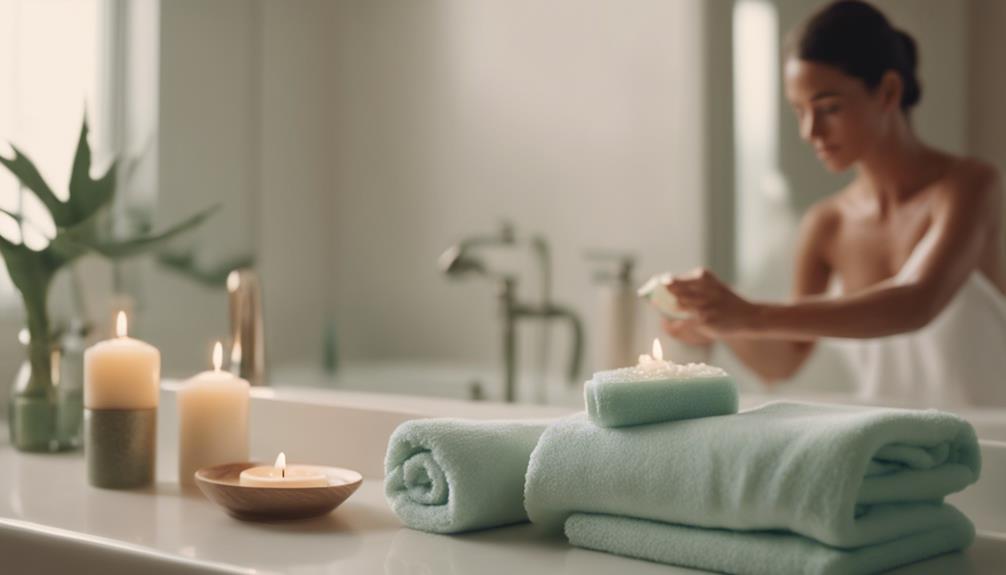
After tanning, applying a soothing moisturizer is essential to keep your skin hydrated and prevent irritation. Think of your skin like a sponge that needs a drink after soaking up all that UV goodness!
A moisturizer with aloe vera works wonders, calming any redness and providing relief. If you feel any discomfort, a dab of hydrocortisone cream can help, but don't forget to check with a dermatologist if it gets too bothersome.
When you hop out of the shower, lock in that moisture while your skin's still damp!
And remember, sunscreen isn't just for beach days—slather it on after tanning to shield your skin from further UV exposure. Your skin will thank you for being so pampered!
Tanning Bed Safety Tips
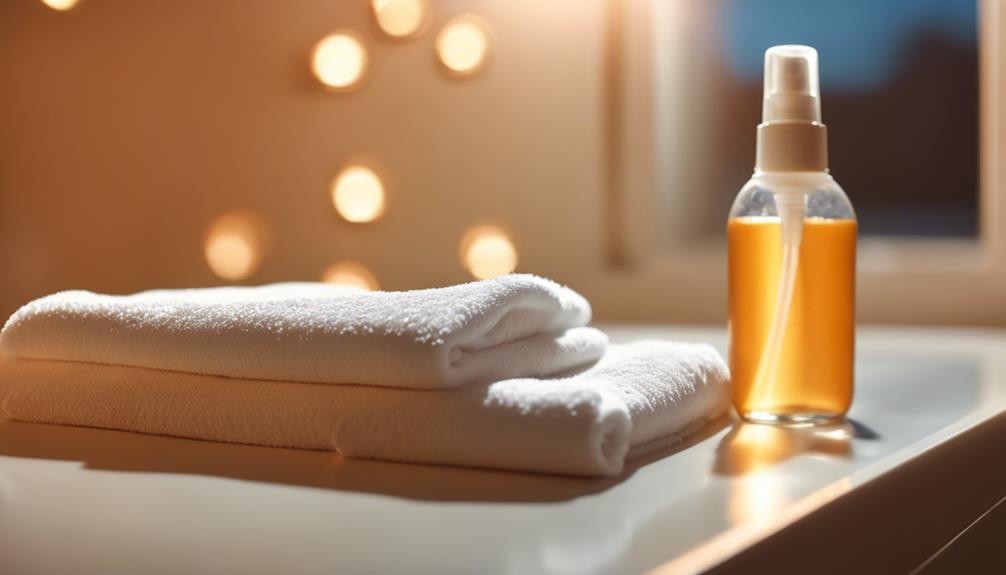
To guarantee a safe tanning experience, always choose a salon that prioritizes hygiene and regularly sanitizes its equipment.
You wouldn't eat at a messy restaurant, right? So why would you tan in a dirty bed?
Before hopping in, make sure to use protective gear like FDA-approved goggles and disposable sheets. This not only keeps you safe but also makes you feel like a tanning pro!
Remember to ask staff about their cleaning routines—knowledge is power!
Limit your tanning sessions to avoid overexposure, and don't forget to take breaks if your skin feels irritated.
Your skin will thank you later!
Recognizing Skin Health Issues
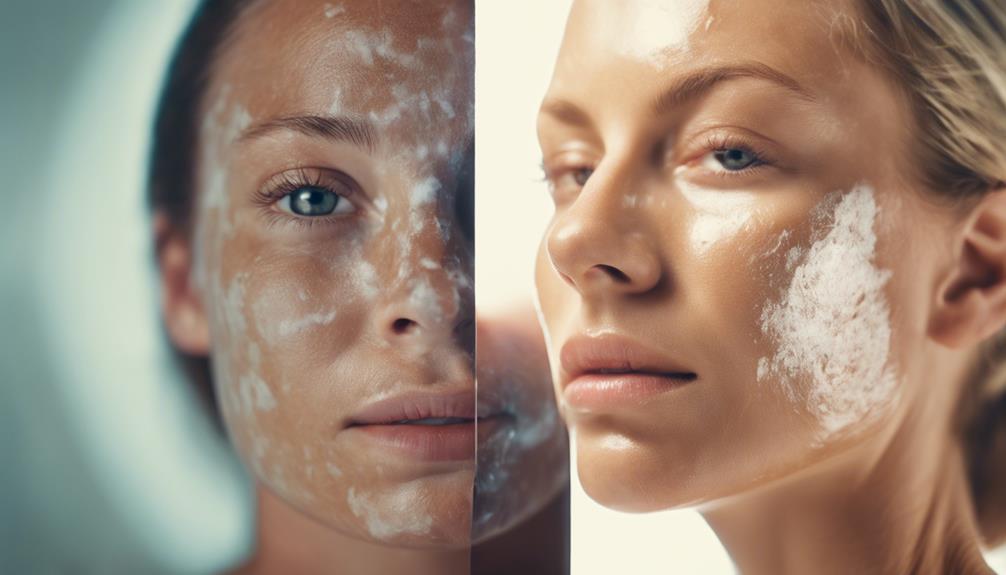
Knowing how to spot skin health issues is essential for anyone who tans, as early detection can prevent more serious problems down the line. You might notice things like unusual moles, redness, or peeling skin after a tanning session.
These signs can be your skin's way of saying, “Hey, something's not right!” If you see any changes, don't ignore them—check in with a dermatologist.
Think of your skin like a canvas; you wouldn't want any weird spots ruining your masterpiece! Remember, it's not just about looking good; it's about feeling good too.
Choosing a Clean Salon
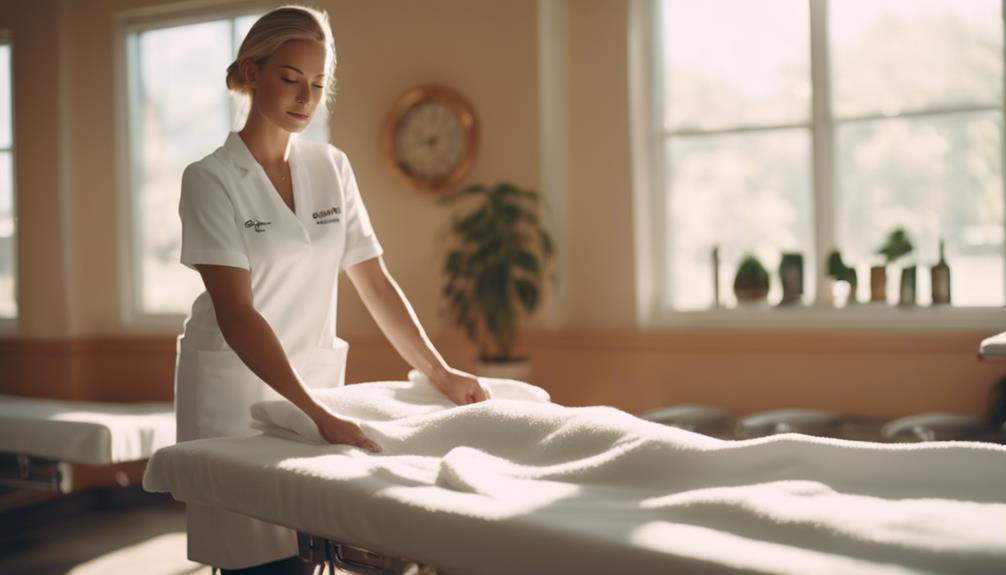
When selecting a tanning salon, prioritize those that showcase a commitment to cleanliness and hygiene practices. You wouldn't want to sit on a dirty chair, right?
Check if the staff actively clean and sanitize the tanning beds before each use. If the salon looks neglected, it's a red flag! Ask about their disinfection routine—if they're serious about hygiene, they'll be happy to share.
Also, pay attention to the overall vibe; a clean environment usually feels fresh and inviting. Think of it like picking a restaurant; you wouldn't eat at a place that looks grimy!
Frequently Asked Questions
How Often Should Tanning Beds Be Cleaned and Disinfected?
Tanning beds should be cleaned and disinfected after every use. You should always check that staff are regularly sanitizing the equipment to minimize infection risks and guarantee a safe tanning experience.
Can I Use Tanning Beds if I Have Sensitive Skin?
About 50% of people with sensitive skin experience irritation from tanning beds. If your skin's sensitive, it's best to consult a dermatologist first, consider lower UV exposure, and use protective products to minimize reactions.
What Are the Signs of a Good Tanning Salon?
When looking for a good tanning salon, check for cleanliness, staff professionalism, and well-maintained equipment. Make certain they prioritize hygiene practices, use protective gear, and offer quality products to enhance your tanning experience safely.
Is There an Age Limit for Using Tanning Beds?
There isn't a strict age limit for using tanning beds, but many salons require parental consent for minors. It's essential you consider the health risks associated with tanning, especially for younger skin that's more sensitive.
How Long Should I Wait Between Tanning Sessions?
How often do you want to risk overexposing your skin? It's best to wait 48 hours between tanning sessions. This allows your skin to recover and reduces the chances of irritation or damage.
Conclusion
Keeping your tanning experience safe and hygienic is super important—not just for looking good but for feeling good, too.
Imagine this: Jenna, who skipped the goggles and ended up with a nasty eye infection that took weeks to heal. Ouch!
By following these tips, you can avoid her fate and rock that sun-kissed glow safely.
Remember, a little extra care goes a long way, so always prioritize your health while enjoying the tan!
